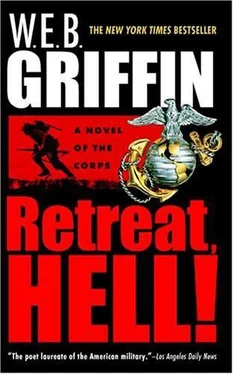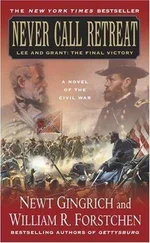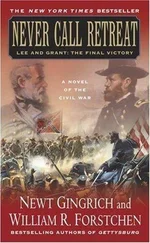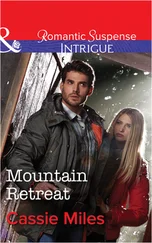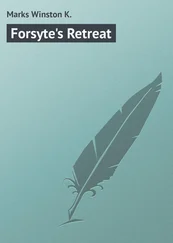Class VI supplies are supposed to have—but usually don't have—the lowest priority for shipment to a combat area. The highest priority goes to medical supplies, followed by ammunition, rations, and so on, based on the military's best judgment of what is most essential.
Class VI supplies are bottled intoxicants, such as whiskey, gin, and rum. They are not issued, but purchased with "nonappropriated funds" intended for resale to officer and noncommissioned officer clubs. They are not subject to alcohol taxes of any kind. Their sale is rigidly controlled and only to "authorized entities."
"Why not?" Major Dunston replied. "We seem to be on a roll." Captain MacNamara had given them every vehicle they had asked for, including a tanker truck and five tank trailers, as well as enough trucks, weapons carriers, and jeeps to make both Baker Company, 5th Marines, "the aviation detachment," and the station fully mobile on the ground.
The officer in charge of the Quartermaster Supply Point had been even more dazzled than Captain MacNamara when three field-grade officers bearing orders personally signed by the President of the United States descended upon his unit in machines he had never heard of.
The men—the Marines and the Army Aviation people—in the bullet- and shrapnel-riddled hangar would that night have a hot meal prepared on field stoves, and everyone would sleep that night on a cot in a sleeping bag. The only thing they would not have was cold beer—a means of refrigeration was not available—but as Mr. Zimmerman pointed out, warm beer was far better than no beer at all.
"Mr. Zimmerman!" McCoy called out, and Zimmerman marched over to them. "Yes, sir?"
"I'm going to need some of our discretionary funds," McCoy said. "I saw the sign," Zimmerman said, taking an oilcloth wallet from his rear pocket. "How much do you want?"
"We don't want to be greedy," McCoy said. "Give Major Dunston two— better make it three—hundred dollars."
Zimmerman opened the wallet, took from it a packet of money labeled "$500—Twenty-Dollar Notes," and counted off two hundred dollars. He handed what was left to Dunston. "That should be three hundred," he said. "I guess I'm going to try to buy the booze?" Dunston said. "Uh-huh," McCoy said. "And into your capable hands, Major Dunston, I entrust the entire wagon train."
"Where are you going?"
"Major Donald is going to take Mr. Zimmerman and me on a reconnaissance mission."
"I'd like to go along," Dunston said.
"I don't think all three of us should go at the same time," McCoy said. "If this flying egg beater should crash and burn with all of us on it, the entire war could well be lost."
"Indeed it could," Dunston said.
"Where are we going?" Major Donald asked.
"Not far from Suwon," McCoy said. "How well do you know the area?"
"I've flown over it. Not a hell of a lot."
"One of the things we hope to do with your aircraft, Major, is locate and pick up a shot-down Marine pilot who's down there somewhere."
"I thought the Marines did that sort of thing themselves," Donald said. "Yes, they do," McCoy said. "But this is sort of a special case. I'll tell you about it at The House."
"The House?"
"Where we stay in Seoul," McCoy explained.
"Do you have any idea where this pilot is?" Donald asked.
"We know where he was thirty-six hours ago."
He took a map from his pocket, opened it, and pointed out the rice paddy where Pickering had last stamped out his arrow and his initials.
"Can you find that?"
Donald glanced at the map and nodded. "No problem." Then he looked at McCoy. "You think he's there?"
"He was there. He's not now."
"How do you know?"
"Because we were there," McCoy said.
"That area's not secure," Donald blurted. "The whole NK army is trying to escape through there."
"So Zimmerman told me," McCoy said.
Donald digested that a moment, then asked, "Where do you think this pilot is now?"
"I have no idea. Maybe he's heading east. Maybe we'll get lucky."
"Whatever you say," Donald said.
"Send the other helo back to Kimpo and have it put in the hangar," McCoy ordered.
"Right."
"We'll see you at the hangar, Bill," McCoy said. "And I think I should tell you this: I don't know how it is in the Army, but in the Marine Corps, officers who fail to adequately protect their Class VI supplies are castrated."
"I'll keep that in mind," Dunston said.
[TWO]
Two Miles NNE of Hoengsong, South Korea
1115 3O September 195O
Major Malcolm S. Pickering's efforts to drain the rice paddy near Yoju the previous evening so that he could stamp out his initials and the arrow had failed.
It would have been a waste of effort to try to stamp the Here I am, for Christ's sake, come and get me message in the dark, so he had waited until morning, hoping that the ground would still be wet and soft enough for the stamping.
The reverse proved to be true. When it grew light enough for him for see, he saw that the rice paddy was covered with water, only an inch or two deep, but covered with water.
He thought at first that he hadn't kicked away enough of the earthen dam to completely drain the water. But a quick investigation of the site showed that the paddy was a natural depression in the hillside, and the only way it could possibly be drained would be to dig a trench and empty it across the dirt path into the next-lower rice paddy.
To dig a trench like that, he quickly saw, would require a pick and shovel, and he had neither tool.
This was not the first time he'd had trouble draining a paddy. Very much the same thing had happened to him three times before. This knowledge of itself was not very comforting.
He had put the A-Frame over his shoulders and climbed up and over the crest of that hill, then worked his way eastward.
He had risen at first light, and left the undrained paddy forty minutes later. By eleven-fifteen, he had moved, in his best guess, about ten or eleven miles. As the crow flies, about four.
He was at the crest of another hill—he hadn't counted, but he thought it was probably the fourth crest—when he heard the fluckata-fluckata-fluckata of a helicopter.
His first reaction was fear. It was not the fluckata-fluckata-fluckata of any of the three helicopters he knew—the Bell, Hiller, and Sikorsky aircraft—all small two-man machines. This fluckata-fluckata-fluckata was louder, heavier, and different.
Since so far as he knew the only U.S. helicopters in Korea were those assigned to the 1st Marine Air Wing, and they were Bells, logic dictated that the aircraft making this fluckata-fluckata-fluckata were not American. It was entirely possible, he thought after a minute, that in the nine thousand years since he had been shot down, the Army or the Air Force had finally gotten its act in gear and gotten some of their own helicopters to Korea, and this was what he was hearing.
But then he thought that the only place the Army could get helicopters was from Bell or Hiller . . .
He recalled then that the Navy had some helos to pick aviators from the drink if they missed a carrier landing or takeoff—he'd actually seen them while practicing carrier takeoffs and recovery off San Diego—but when he thought about that, he remembered the fluckata-fluckata-fluckata they'd made, and it wasn't the fluckata-fluckata-fluckata he was hearing now.
. . . and he knew the fluckata-fluckata-fluckata he was hearing now wasn't coming from a Bell or a Hiller, so it had to be made by something else. Like a Russian helicopter. The Russians had helicopters. Hell, the Russians had invented helicopters. Both Sikorsky and Piasecki were Russians before they came to the States.
Читать дальше
